Pazuzu is most well-known today thanks to a horror movie about demonic possession; yet He is evoked much more faithfully in a completely different film by the same director.
So far, 2021 has not been much easier than 2020. But if there is one amazing thing for which I will always remember this year moving forward, it’s the fact that I met Pazuzu and He helped me heal myself some when I needed it very badly.
I have known about Pazuzu since I was a teenager, but my understanding of His lore and symbolism was severely inhibited by popular culture at the time. I have no memory of ever reaching out to Him at any point in prayer. I had considered writing a song about Him sometime in 2020; but I eventually forgot about this idea, and I certainly wasn’t planning to write an entire album devoted to Him. When 2021 began, I experienced a near complete mental break and did not think I would ever produce anything again for a while. But then in April, I suddenly felt driven by Pazuzu to write and record 10 songs for Him in less than one week.
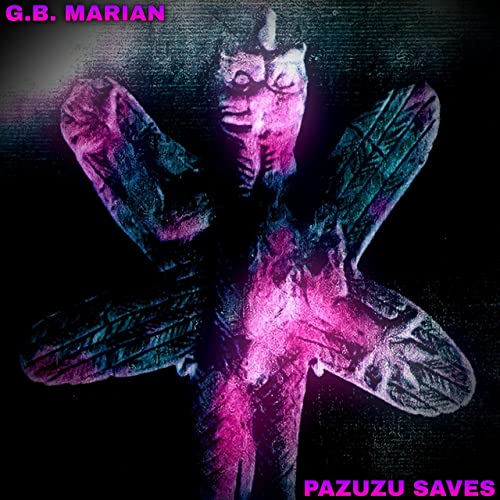
And by the time it was over, I felt….something like myself again. Better. Healthier. Not exactly what you’d expect from a figure who is most commonly portrayed as a horror movie villain, is it?
Most people who are familiar with Pazuzu these days are first introduced to Him by William Peter Blatty’s The Exorcist (1973), which was directed by William Friedkin. Blatty is another one of those self-proclaimed “experts” in demonology from the Satanic Panic era, and his novel The Exorcist was inspired by a “real life” exorcism he investigated. The story features Pazuzu as its antagonist, an evil demon that possesses an adolescent girl and drives her to commit all manner of vile obscenities. The film version is one of the most faithful screen adaptations of a novel I have ever seen, and great pains were taken to design a giant Pazuzu statue that is more or less true to ancient Mesopotamian motifs. As a result, it could be said that Pazuzu Himself was actually cast in the film, if only for a few brief cameos.
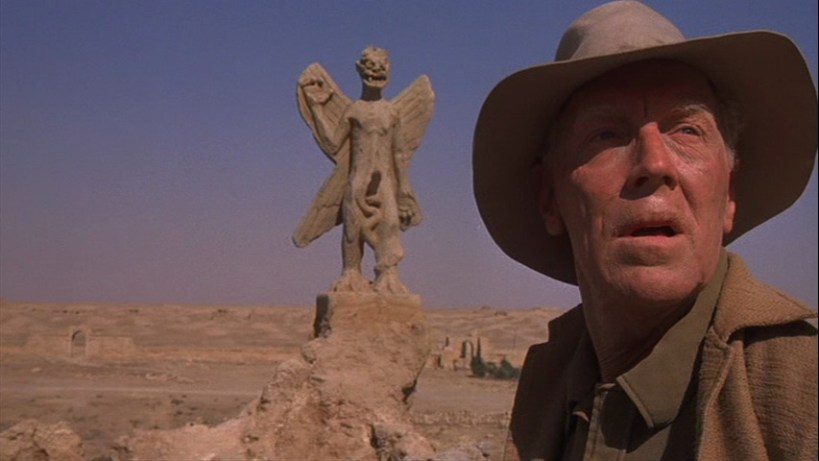
The Exorcist was a real game changer, and if you need any convincing, just look at how horror movie soundtracks changed after 1973. Prior to The Exorcist, most horror films featured romantic orchestral scores. The themes and melodies might crescendo and increase in tempo at certain points, but they still have harmony, being fairly easy on the ears. William Friedkin originally enlisted the composer Lalo Schifrin to score The Exorcist, but was unsatisfied with everything Schifrin offered and eventually fired him. Friedkin ended up using all pre-recorded music for the film, music that was progressive and experimental for the time.
Most everyone knows the Exorcist “theme song” is actually just a brief clip from Mike Oldfield’s Tubular Bells (1973); but the film also includes selections from Krzyzstof Penderecki’s Polymorphia (1962) and George Crumb’s Black Angels (1970). And while these latter pieces are technically considered “classical,” they belong to that lovely postmodernist category where it’s all orchestral drones and ambience. Shit like this had seldom been used in any films before, and it sounds terrifying as hell, so it didn’t exactly get much radio play either. But it speaks volumes that nearly every horror movie made since 1973 has used much the same sound design template. This is most obviously exemplified by Stanley Kubrick’s The Shining (1980), which includes quite a bit of Penderecki in its soundtrack. But you can also hear this kind of influence in the music of Goblin (e.g., Suspiria, 1977), John Carpenter (Halloween, 1978), Christopher Young (Hellraiser, 1987), and countless others.
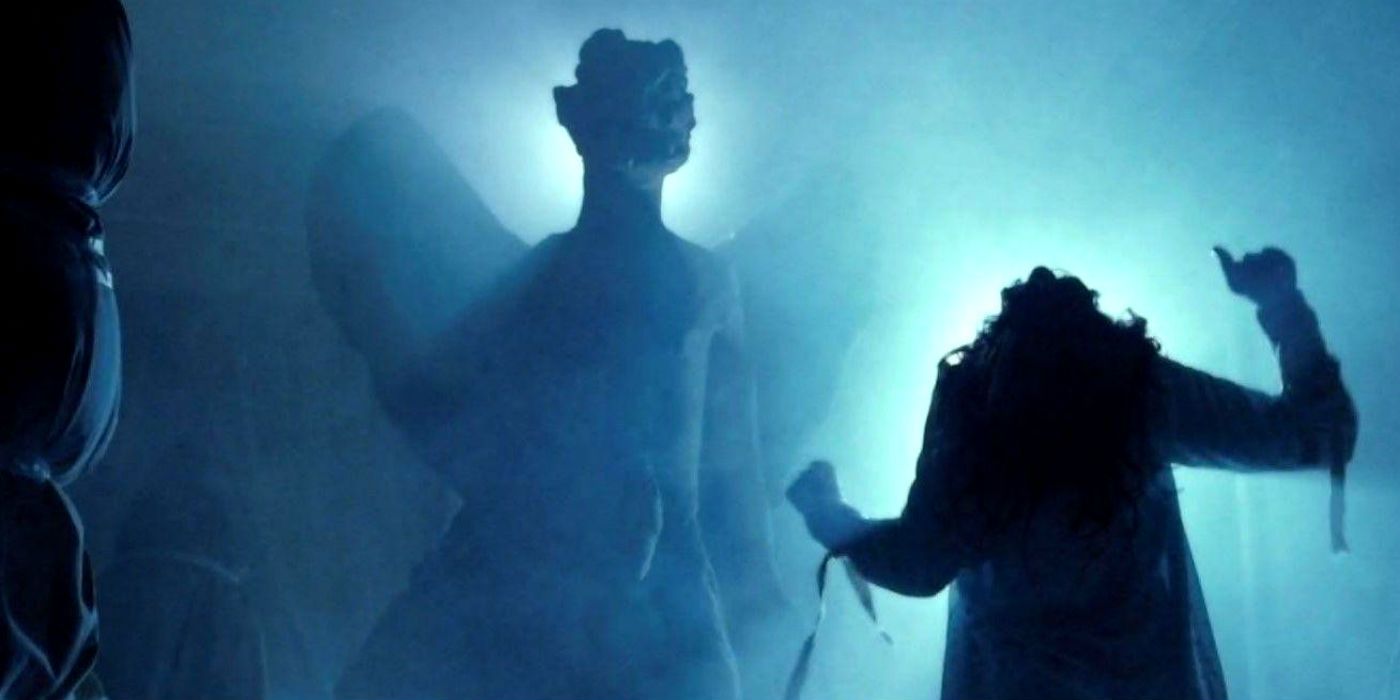
(An interesting aside: Ennio Morricone scored Exorcist II: The Heretic in 1977, and Morricone was already known for incorporating some postmodernist influences into his work; consider his scores for Sergio Leone’s Westerns from the 1960’s, for example. Meanwhile, Lalo Schifrin was recruited for The Amityville Horror in 1979, and he repurposed the score he had previously composed for The Exorcist in 1973. There is most definitely a solid Penderecki influence in the finished product, with all those shrill discordant strings.)
The Exorcist is a fantastic film, and it is one of my favorites. Yet there are certain things about it that annoy me. I would enjoy it much better if the story didn’t use a Pagan god for its villain. I understand the movie is really just a giant commercial for the Catholic Church; but there was no need to pick on a random god from another religion to make this point. Still, I probably wouldn’t even know about Pazuzu if I had never seen this film, and the same is likely true of many who walk with Him today. Perhaps in this sense, the ulterior purpose of Blatty’s novel has backfired, providing Pazuzu with an unexpected gateway to our hearts.
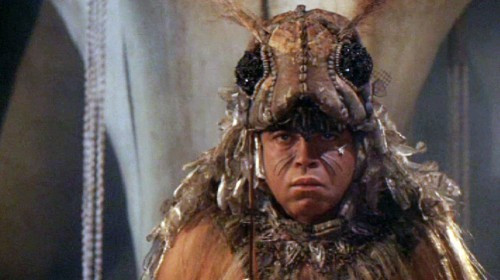
Naturally, the success of The Exorcist has led to several sequels and even a recent television series. The absolute worst of these continuations—Exorcist II: The Heretic (1977)—is simultaneously the most fascinating. Directed by the ever-pretentious John Boorman (oh gods please rescue me from ever seeing Zardoz again), The Heretic is really just an excuse for the male gaze to linger on Linda Blair’s blossoming physique, and for Richard Burton to stumble through the script while drunk off his ass. For a more articulate synopsis of this bizarre piece-o-shit movie, I highly recommend my friend ChillerPop’s magnificent review thereof. For our purposes here, the important thing is that Pazuzu is still the villain, but He is not just the “fallen angel” He is claimed to be in the first movie. He is more like a force of nature that can actually be tamed or domesticated by human beings via magic and/or science. The Heretic appears to suggest that the Catholic Church is powerless to stop a force like Pazuzu…and this is a step in the right direction, at least.
Pazuzu is not a fallen angel, but an Assyro-Babylonian god. He is indeed described as the “King of the wind demons” in His original lore; but this means something very different in context. It is really referring to elemental nature spirits, and not to any demons from Christian mythology. Pazuzu is the “King” of these spirits because the rest are all afraid of Him, and they flee if He gets angry. This is exactly why the ancients invoked Him to protect their women and children from other spirits like Lamashtu, which thrive on harming and murdering both. Writers often describe this practice as “using evil against evil” (a line that is even used in the original Exorcist), but I call bullshit. The god of the Bible seems plenty wrathful and violent himself, but people don’t generally think of Christian exorcisms as “using evil against evil.” There really isn’t much difference in principle here, save that Pazuzu is a lesser-known polytheist deity. And as someone who has survived child abuse, I think it really says something that Pazuzu was thought to be so personally invested in the safety of human mothers and babies. That sounds like the complete opposite of “evil,” if you ask me.
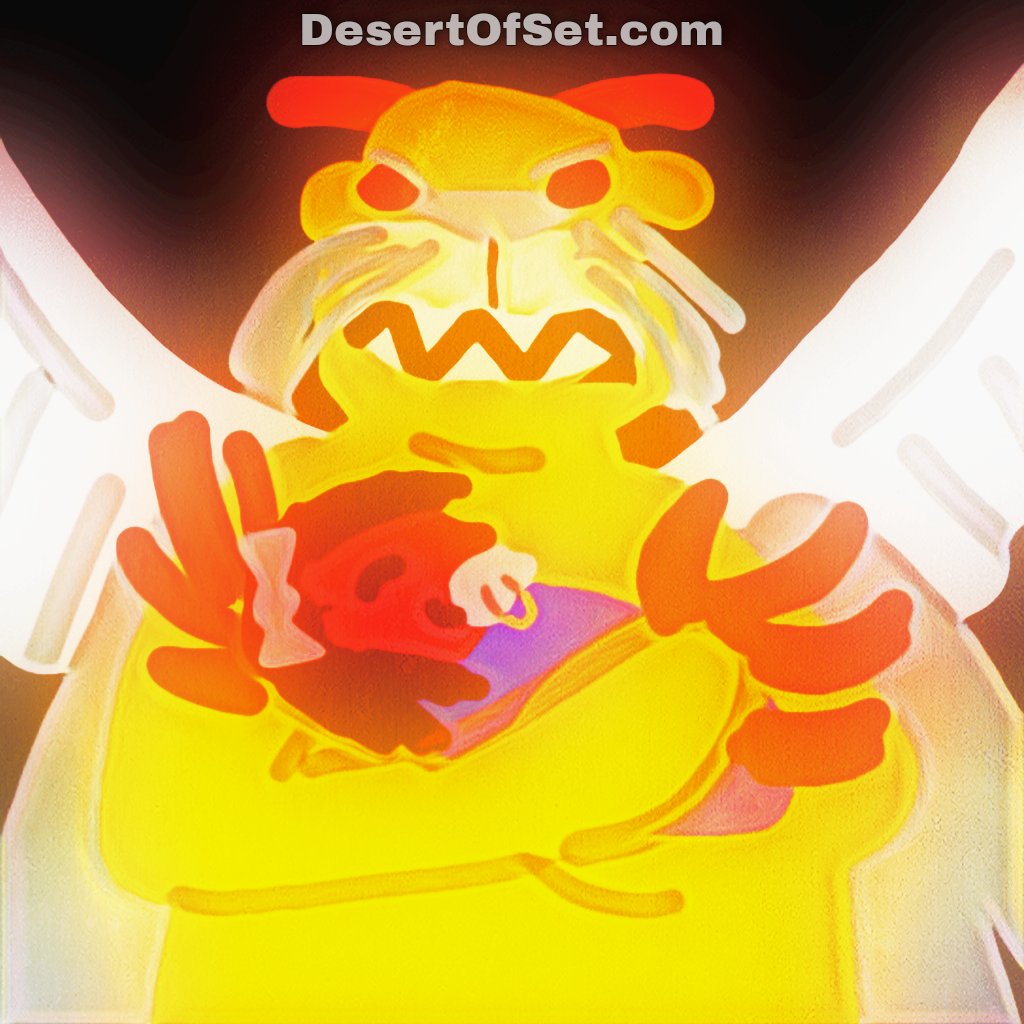
None of the Exorcist films do any justice to Pazuzu; but there is another film I have seen that seems to resonate with Him somehow. William Friedkin’s next project after The Exorcist was a movie called Sorcerer from 1977. Despite its supernatural-sounding title, Sorcerer is not a horror film, but more of a bizarre jungle adventure. It’s about these four nefarious men from different countries (one of whom is played by Roy Scheider) who are hiding from mobsters and the law in some unnamed South American country. When a nearby oil rig explodes, killing countless workers, the company owners decide to stop the fire with some nitroglycerin—but the closest batch is damaged, extremely old, and highly volatile. So they enlist the four main characters to haul that nitro through the mountains and rainforests in these really big trucks. What follows is one of the most engrossing and suspenseful quests I’ve ever seen in any film, for just one false move could blow all these poor sweaty bastards straight to hell!

Despite its lack of any supernatural content, there is a powerful mystical edge to Sorcerer. William Friedkin deliberately chose the title as a reference to The Exorcist, stating that the titular “Sorcerer” is actually Fate itself. The trucks that are used for transporting the nitro have demonic-looking “faces,” with their headlights and grills resembling eyes and mouths full of teeth. At numerous points, the protagonists drive past stone figures of ancient gods and monsters from South American folklore. There is one sequence when they must drive across an extremely flimsy bridge, and we can hear the sound of wailing demons in the wind. One of the trucks even has Pazuzu clearly drawn in chalk on its hood—as if He were being asked to watch over these men and their deadly burden!
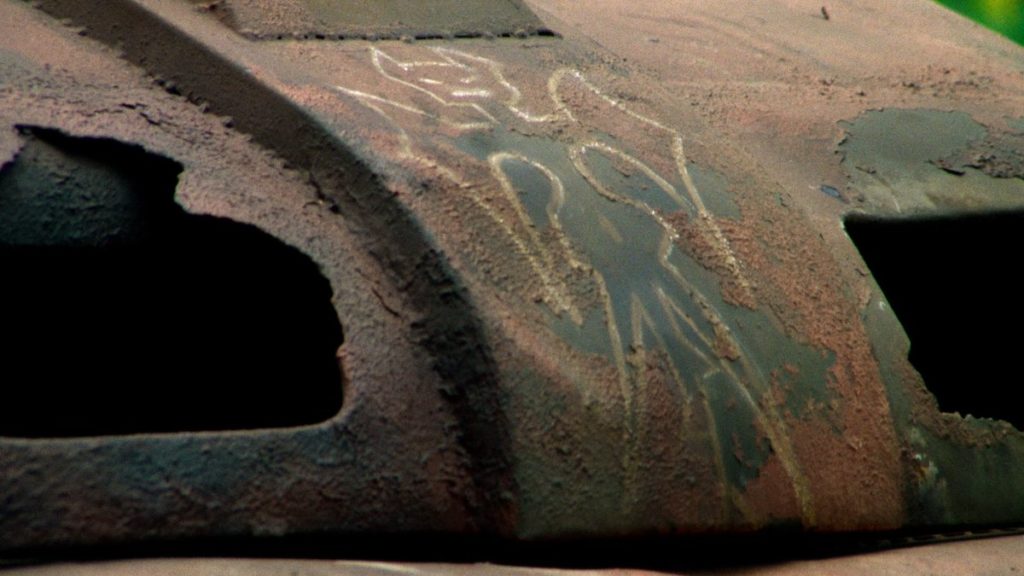
And then there’s that magnificent electronic music score by Tangerine Dream, which sounds like it belongs in a fucking horror movie. The band composed and produced all of this music without seeing any video footage from the film at all. They delivered even more music than William Friedkin could use, and he was so delighted with their work that he wished he could go back in time and have them score The Exorcist for him. Remember, Friedkin had trouble finding the unique sounds he wanted for that film. Mike Oldfield’s Tubular Bells was an excellent choice for the theme, but can you imagine The Exorcist with music by Tangerine Dream instead? Listen to the Sorcerer soundtrack, and you will have an idea of what such a score would have sounded like. (The very first track, “Main Title,” is especially terrifying to hear in the dark.)
The Sorcerer soundtrack is one of my all-time favorite albums; I first discovered it as a 7th grader in 1995, and I am sure its influence can be found in my latest album, Pazuzu Saves (2021). This was actually unintentional; I wasn’t even thinking about this movie when I first composed the music. But something moved me to re-watch the film a few days after releasing Pazuzu Saves, and I was blown away by all the incidental references to this god (which I had never noticed before). Then I got to thinking about how this movie is all about these roughnecks ascending treacherous mountains to rescue the impoverished South American village they have learned to call home. The story of Pazuzu Saves is partially inspired by tales of the god flying up a mountain to break the wings of all the wind demons that menace humankind. It is difficult for me at this point NOT to watch Sorcerer and draw some kind of parallel to this theme, even though the film is not intended to convey any kind of religious message. Perhaps Pazuzu appreciated being cast in The Exorcist so much, He returned the favor by acting as William Friedkin’s muse for Sorcerer. The latter film certainly feels more in line with what Pazuzu is really all about, at least in my opinion.
